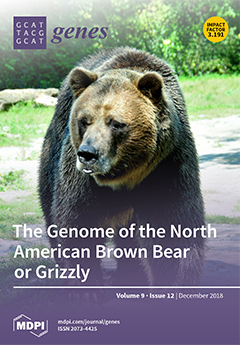Open AccessArticle
Blood-Based Biomarkers for Predicting the Risk for Five-Year Incident Coronary Heart Disease in the Framingham Heart Study via Machine Learning
by
Meeshanthini V. Dogan 1,2,3,*, Steven R. H. Beach 4, Ronald L. Simons 5, Amaury Lendasse 6,7, Brandan Penaluna 8 and Robert A. Philibert 1,2,3,8
1
Department of Biomedical Engineering, University of Iowa, Iowa City, IA 52242, USA
2
Cardio Diagnostics LLC, 2500 Crosspark Road, Coralville, IA 52241, USA
3
Department of Psychiatry, University of Iowa, Iowa City, IA 52242, USA
4
Department of Psychology, University of Georgia, Athens, GA 30602, USA
5
Department of Sociology, University of Georgia, Athens, GA 30606, USA
6
Information and Logistics Technology Department, University of Houston, Houston, TX 77004, USA
7
Department of Business Management and Analytics, Arcada University of Applied Sciences, 00560 Helsinki, Finland
8
Behavioral Diagnostics LLC, 2500 Crosspark Road, Coralville, IA 52241, USA
Cited by 34 | Viewed by 6988
Abstract
An improved approach for predicting the risk for incident coronary heart disease (CHD) could lead to substantial improvements in cardiovascular health. Previously, we have shown that genetic and epigenetic loci could predict CHD status more sensitively than conventional risk factors. Herein, we examine
[...] Read more.
An improved approach for predicting the risk for incident coronary heart disease (CHD) could lead to substantial improvements in cardiovascular health. Previously, we have shown that genetic and epigenetic loci could predict CHD status more sensitively than conventional risk factors. Herein, we examine whether similar machine learning approaches could be used to develop a similar panel for predicting incident CHD. Training and test sets consisted of 1180 and 524 individuals, respectively. Data mining techniques were employed to mine for predictive biosignatures in the training set. An ensemble of Random Forest models consisting of four genetic and four epigenetic loci was trained on the training set and subsequently evaluated on the test set. The test sensitivity and specificity were 0.70 and 0.74, respectively. In contrast, the Framingham risk score and atherosclerotic cardiovascular disease (ASCVD) risk estimator performed with test sensitivities of 0.20 and 0.38, respectively. Notably, the integrated genetic-epigenetic model predicted risk better for both genders and very well in the three-year risk prediction window. We describe a novel DNA-based precision medicine tool capable of capturing the complex genetic and environmental relationships that contribute to the risk of CHD, and being mapped to actionable risk factors that may be leveraged to guide risk modification efforts.
Full article
►▼
Show Figures






